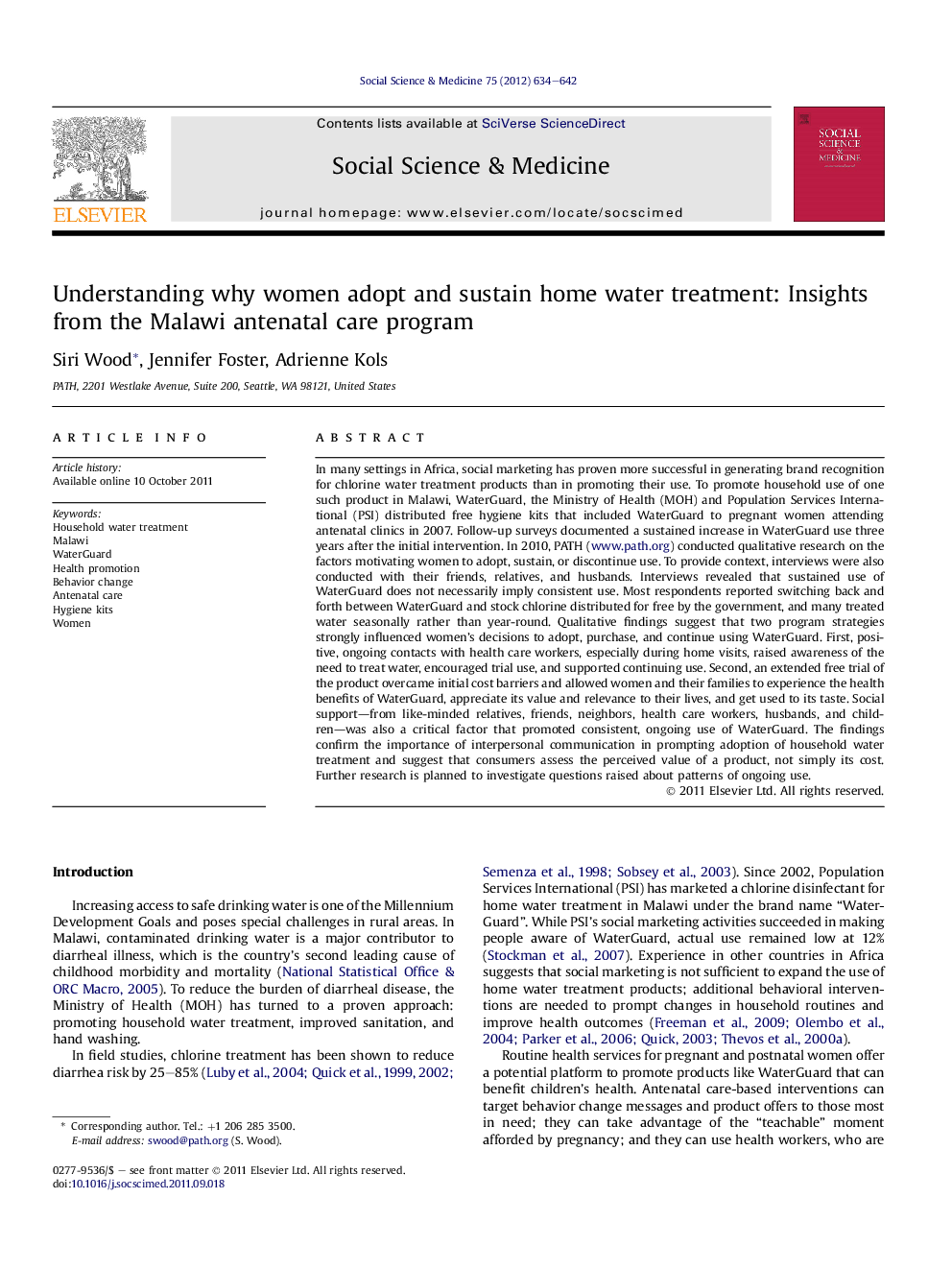| کد مقاله | کد نشریه | سال انتشار | مقاله انگلیسی | نسخه تمام متن |
|---|---|---|---|---|
| 952418 | 927513 | 2012 | 9 صفحه PDF | دانلود رایگان |

In many settings in Africa, social marketing has proven more successful in generating brand recognition for chlorine water treatment products than in promoting their use. To promote household use of one such product in Malawi, WaterGuard, the Ministry of Health (MOH) and Population Services International (PSI) distributed free hygiene kits that included WaterGuard to pregnant women attending antenatal clinics in 2007. Follow-up surveys documented a sustained increase in WaterGuard use three years after the initial intervention. In 2010, PATH (www.path.org) conducted qualitative research on the factors motivating women to adopt, sustain, or discontinue use. To provide context, interviews were also conducted with their friends, relatives, and husbands. Interviews revealed that sustained use of WaterGuard does not necessarily imply consistent use. Most respondents reported switching back and forth between WaterGuard and stock chlorine distributed for free by the government, and many treated water seasonally rather than year-round. Qualitative findings suggest that two program strategies strongly influenced women’s decisions to adopt, purchase, and continue using WaterGuard. First, positive, ongoing contacts with health care workers, especially during home visits, raised awareness of the need to treat water, encouraged trial use, and supported continuing use. Second, an extended free trial of the product overcame initial cost barriers and allowed women and their families to experience the health benefits of WaterGuard, appreciate its value and relevance to their lives, and get used to its taste. Social support—from like-minded relatives, friends, neighbors, health care workers, husbands, and children—was also a critical factor that promoted consistent, ongoing use of WaterGuard. The findings confirm the importance of interpersonal communication in prompting adoption of household water treatment and suggest that consumers assess the perceived value of a product, not simply its cost. Further research is planned to investigate questions raised about patterns of ongoing use.
► Qualitative study which explores factors motivating women in Malawi to use WaterGuard, a household water treatment product.
► Free product trial through antenatal clinics overcame initial cost barriers and demonstrated the product’s health benefits.
► Repeated contact with health workers during home visits prompted women to try WaterGuard and supported continuing use.
► Main barriers to sustained use were product affordability and seasonal rather than year-round treatment.
► Social support at both the community and household levels was critical to consistent, ongoing use and purchase.
Journal: Social Science & Medicine - Volume 75, Issue 4, August 2012, Pages 634–642